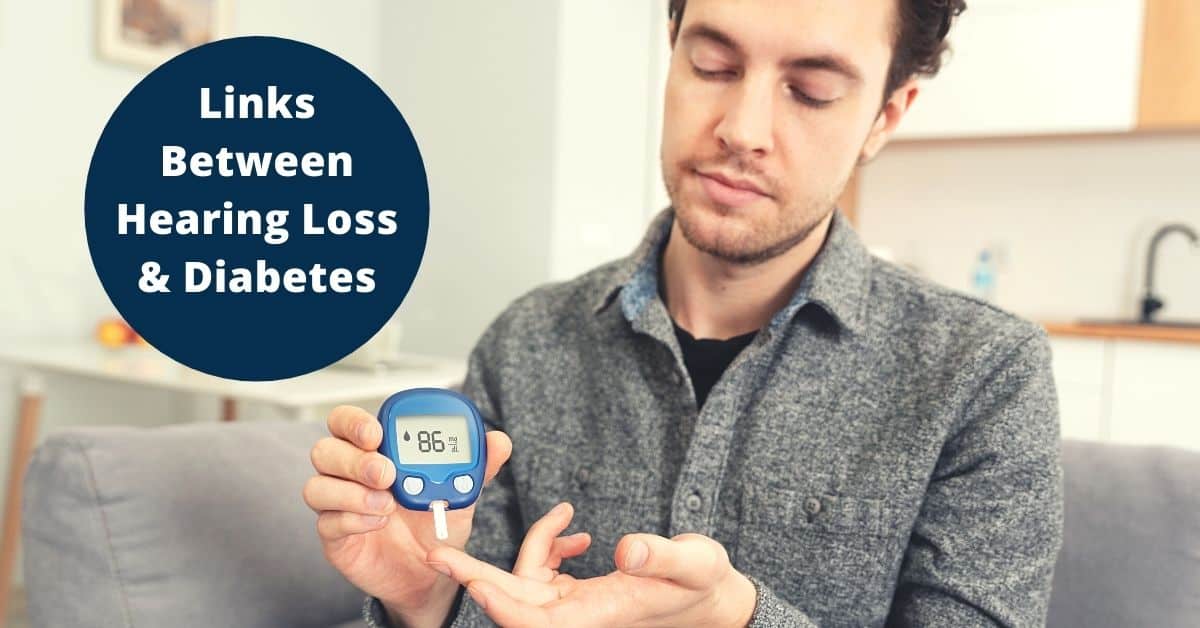Did you know that over 30 million Americans have diabetes? People of all ages can have this chronic disease, and will need to carefully monitor their health. Diabetes also increases the risk of developing hearing loss, and researchers have found that people with diabetes are far more likely to develop hearing loss in their life. If you have diabetes you will need to keep an eye on your hearing health and watch for the signs of hearing loss.
All About Diabetes
Diabetes is a chronic disease that affects how your body manages and produces insulin. When insulin isn’t regulated or produced properly, glucose will build up in the blood cells. You’ll have high blood sugar levels, and your cells won’t get the nutrition they need.
There are two main types of diabetes:
- Type 1 diabetes is characterized by the inability to produce insulin. If you have Type 1 diabetes, your body isn’t making insulin at all. Without insulin, glucose can’t move from the bloodstream into your cells.
- Type 2 diabetes is characterized by an underproduction of insulin. If you have Type 2 diabetes, your body is producing some insulin. However, your body isn’t making enough insulin, so you still have high blood sugar levels, and your cells aren’t getting the glucose they need.
People with diabetes have to manage their high blood sugar levels and monitor their overall health. Diabetes can lead to kidney failure, poor circulation, heart disease, and even problems with eyesight such as blurred vision or vision loss. People with diabetes also report slower healing from illness and infections.
Diabetes and Hearing Loss
Several recent studies have discovered links between hearing loss and diabetes. A study by the National Institutes of Health (NIH) found that people with diabetes are twice as likely to have hearing loss than people without diabetes! Another study in the Journal of Clinical Endocrinology & Metabolism analyzed the data from a number of studies with a total of more than 20,000 participants. This 2012 study also found that hearing loss is far more common among people with diabetes.
Diabetes can lead to higher rates of hearing loss due to high blood sugar levels. Researchers think that high blood glucose levels can damage the delicate cells in the inner ear. These cells depend on a steady flow of oxygenated blood, and changes in this blood flow can easily damage the cells. When these cells are damaged or die, they can’t send signals to the brain about the sounds in your environment. Without the cells in the ear working properly, you’ll experience hearing loss.
Protecting Your Hearing
If you have diabetes, it’s important that you carefully monitor your blood sugar levels. Follow your recommended treatment plan, and visit your doctor for regular checkups. Along with monitoring diabetes, there are a few other ways you can protect your hearing, such as:
- Turning down the volume when you listen to music with earbuds or headphones.
- Turning down the volume on the TV and car radio to prevent hearing loss.
- Wearing earplugs whenever you’re in excessive noise, such as a rock concert or sports event.
- Exercising regularly to promote healthy blood circulation throughout your body and your ears.
- Maintaining a healthy weight to look after your cardiovascular health.
- Scheduling regular hearing tests so you can monitor your hearing health, and notice the early warning signs of hearing loss.
Treating Hearing Loss
If you have diabetes, it’s important to have regular hearing tests. Diabetes increases your risk of hearing loss, and can also accelerate hearing loss. Make hearing tests a yearly priority. Think of your hearing test like your yearly vision test. You get your vision tested every year to make sure you’re seeing clearly. In the same way, make sure you get your hearing tested every year to make sure you’re hearing clearly.
Do you have hearing loss? We’re here to help you explore all your treatment options. We have a wide selection of hearing aids to suit every lifestyle, and we’ll find devices that match your hearing needs. Whether you want a sleek hearing aid that rests behind the ear, or a stylish device that sits in your ear, we have hearing aids with all the programs you need to help you hear.


